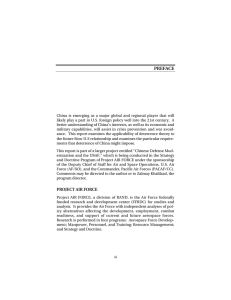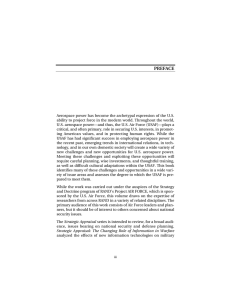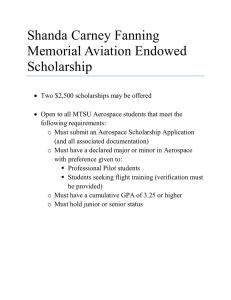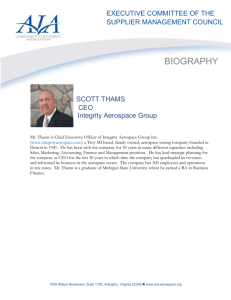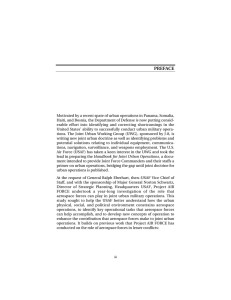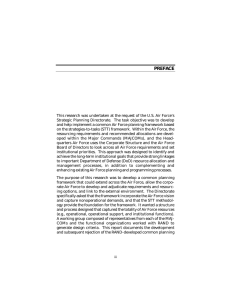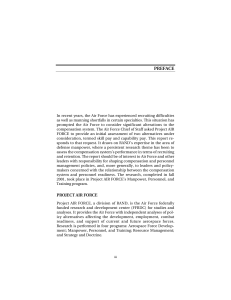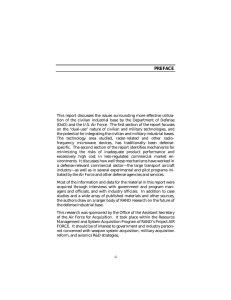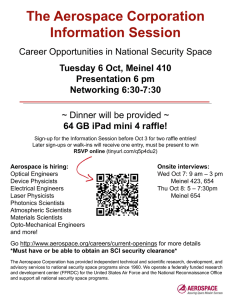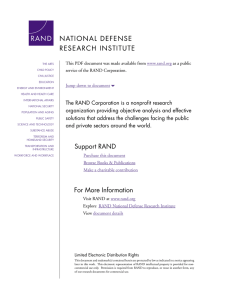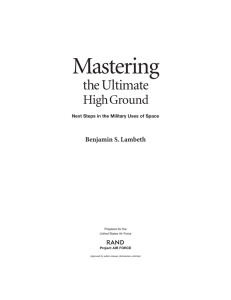PREFACE
advertisement
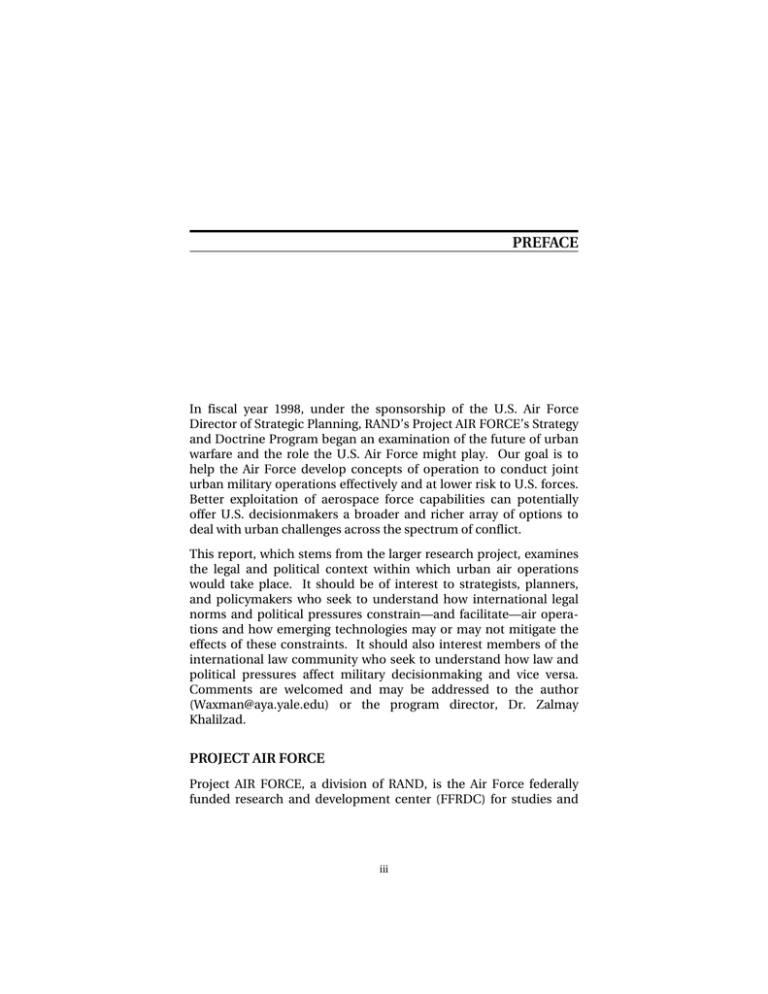
PREFACE In fiscal year 1998, under the sponsorship of the U.S. Air Force Director of Strategic Planning, RAND’s Project AIR FORCE’s Strategy and Doctrine Program began an examination of the future of urban warfare and the role the U.S. Air Force might play. Our goal is to help the Air Force develop concepts of operation to conduct joint urban military operations effectively and at lower risk to U.S. forces. Better exploitation of aerospace force capabilities can potentially offer U.S. decisionmakers a broader and richer array of options to deal with urban challenges across the spectrum of conflict. This report, which stems from the larger research project, examines the legal and political context within which urban air operations would take place. It should be of interest to strategists, planners, and policymakers who seek to understand how international legal norms and political pressures constrain—and facilitate—air operations and how emerging technologies may or may not mitigate the effects of these constraints. It should also interest members of the international law community who seek to understand how law and political pressures affect military decisionmaking and vice versa. Comments are welcomed and may be addressed to the author (Waxman@aya.yale.edu) or the program director, Dr. Zalmay Khalilzad. PROJECT AIR FORCE Project AIR FORCE, a division of RAND, is the Air Force federally funded research and development center (FFRDC) for studies and iii iv International Law and the Politics of Urban Air Operations analysis. It provides the Air Force with independent analysis of policy alternatives affecting the deployment, employment, combat readiness, and support of current and future aerospace forces. Research is performed in four programs: Aerospace Force Development; Manpower, Personnel, and Training; Resource Management; and Strategy and Doctrine.
